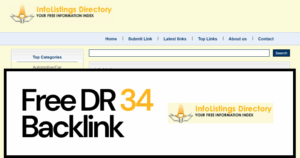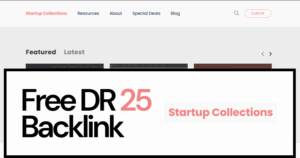Are you looking to boost your content’s visibility and drive more organic traffic to your website? Understanding how to use keywords effectively is key to achieving success in search engine optimization (SEO). In this comprehensive guide, we’ll dive into the crucial role of keywords in SEO and content optimization, from researching and selecting relevant keywords to strategically placing them in your content. You’ll learn how to create high-quality, engaging content that aligns with user intent and search queries, while leveraging keywords to enhance relevance. We’ll also explore how to monitor and adapt your keyword strategy based on performance data, as well as how to leverage keywords across different content types, including blog posts, product descriptions, and visual content. Additionally, we’ll delve into the world of semantic SEO and keyword variations, as well as implementing local SEO strategies with keywords for targeted visibility. By the end of this guide, you’ll be equipped with the knowledge and tools to measure keyword success and ROI, ultimately driving meaningful results for your content and website. Let’s embark on this journey to unlock the power of keywords and take your content to the next level!
Understanding the Importance of Keywords in SEO
Keywords play a crucial role in search engine optimization (SEO) as they directly impact the ranking of a website or content. When users search for information online, they use specific keywords to find relevant results. Therefore, by incorporating these keywords strategically into your content, you can improve the chances of your website appearing in the search results.
In addition to improving search engine ranking, keywords also contribute to content optimization. By using relevant keywords in your content, you can make it more accessible and visible to your target audience. This is particularly important for businesses and websites looking to attract organic traffic and increase their online presence.
Furthermore, the effective use of keywords can significantly boost organic traffic to your website. When your content is optimized with the right keywords, it becomes more likely to appear in search results, attracting more visitors who are actively searching for the information or products you offer. This can ultimately lead to higher conversion rates and greater success for your online endeavors.
Researching and Selecting Relevant Keywords
When it comes to effectively using keywords in your content, the first step is to research and select relevant keywords that align with your target audience’s search queries. This involves understanding the language and terminology your audience uses when searching for information related to your content. By identifying these key phrases, you can better optimize your content to meet the needs of your audience.
Utilizing keyword research tools is essential in this process. These tools can provide valuable insights into the search volume, competition, and relevance of various keywords. By leveraging these tools effectively, you can identify high-performing keywords that are likely to drive traffic to your content. Additionally, it’s important to consider long-tail keywords and latent semantic indexing (LSI) keywords, as these can help you capture more specific and relevant search traffic.
In summary, the research and selection of relevant keywords play a crucial role in the success of your content. By understanding your target audience, utilizing keyword research tools, and selecting appropriate long-tail and LSI keywords, you can optimize your content for better search visibility and audience engagement.
Optimizing Content with Keywords
Strategically placing keywords in content is essential for improving search engine rankings and increasing visibility. By conducting thorough keyword research and identifying relevant terms, content creators can strategically incorporate these keywords into their content. This can help attract the right audience and drive organic traffic to the website.
Avoiding keyword stuffing is crucial to maintain a natural flow and readability in the content. Overusing keywords can have a negative impact on the user experience and can also result in penalties from search engines. It is important to find a balance and seamlessly integrate keywords into the content to ensure that it remains valuable and engaging for the audience.
Using keywords in meta tags and image alt text can further enhance the optimization of content. By including relevant keywords in meta titles, descriptions, and image alt text, content can become more discoverable and improve its chances of ranking higher in search results. This additional step can contribute to the overall effectiveness of keyword optimization in content.
Creating High-Quality Content Around Keywords
Crafting high-quality content around keywords involves conducting thorough research to understand the target audience and their search queries. By identifying relevant keywords and strategically incorporating them into the content, you can ensure that your material aligns with user intent and provides valuable information. This approach not only enhances the relevance of your content but also improves its visibility in search engine results.
When creating content around keywords, it’s crucial to focus on crafting engaging and informative material. This means providing in-depth insights, answering common questions, and addressing the needs of your audience. By leveraging the power of keywords, you can tailor your content to meet the specific interests and preferences of your target audience, ultimately leading to a more satisfying user experience.
Utilizing keywords effectively in your content also involves maintaining a natural and seamless flow. Overloading your material with keywords can negatively impact readability and user experience. Instead, strive to integrate keywords organically, ensuring that they enhance the overall value and relevance of your content without feeling forced or out of place.
Monitoring and Adapting Keyword Strategy
To effectively utilize keywords in content, it is essential to continuously monitor their performance and search rankings. This involves tracking the keywords used in the content and analyzing how they are performing in search engine results. By keeping a close eye on keyword performance, content creators can identify which keywords are driving traffic and which ones may need to be adjusted or replaced.
In addition to tracking keyword performance, it is important to analyze user engagement and behavior with keywords. This includes examining how users are interacting with the content and which keywords are leading to higher levels of engagement. By understanding user behavior, content creators can gain valuable insights into which keywords are resonating with their audience and which ones may need to be optimized or revised.
Based on the data gathered from monitoring keyword performance and user engagement, content creators can then adapt their keyword strategy accordingly. This may involve adjusting the usage of keywords, incorporating new keywords, or phasing out underperforming keywords. By staying flexible and responsive to the data, content creators can ensure that their keyword strategy remains effective and aligned with the evolving needs of their audience.
Leveraging Keywords Across Different Content Types
When it comes to using keywords effectively in your content, it’s important to understand how to leverage them across different types of content. Whether you’re creating blog posts, articles, product descriptions, landing pages, or visual content, incorporating keywords strategically can significantly impact your search engine visibility and overall content performance.
For blog posts and articles, the key is to naturally integrate relevant keywords within the content. This means using keywords in the title, headings, subheadings, and throughout the body of the text. By doing so, you can signal to search engines what your content is about and improve its chances of ranking for those specific keywords.
Similarly, when it comes to product descriptions, landing pages, and visual content such as videos, it’s crucial to optimize the use of keywords. This involves incorporating keywords in meta descriptions, alt text, and captions, as well as within the content itself. By applying keywords effectively across these different content types, you can enhance the discoverability and relevance of your content, ultimately driving more traffic and engagement.
Utilizing Semantic SEO and Keyword Variations
Utilizing semantic SEO involves understanding the concept of semantic search and its impact on keywords. Semantic search focuses on the intent and context of the search query, rather than just the keywords themselves. This means that search engines are now able to understand the meaning behind the words, allowing for more comprehensive and relevant search results.
Exploring keyword variations and related terms is essential for effective keyword utilization. Instead of solely focusing on a single keyword, it’s important to identify related terms and variations that users may use when searching for similar content. By incorporating these variations into your content, you can increase the likelihood of your pages appearing in search results for a wider range of queries.
Implementing semantic SEO allows for comprehensive keyword coverage by taking into account the various ways in which users may search for a particular topic. By incorporating semantic SEO strategies, you can ensure that your content is optimized for a broader range of search queries, ultimately increasing its visibility and relevance to users.
Implementing Local SEO Strategies with Keywords
Leveraging location-based keywords is crucial for improving local visibility and attracting nearby customers. By incorporating specific city names, neighborhoods, or other local identifiers into your content, you can increase the chances of showing up in local search results. This can be especially beneficial for businesses with physical locations looking to drive foot traffic and boost local sales.
Optimizing Google My Business and local directories with relevant keywords is another effective way to enhance your local SEO efforts. When users search for businesses or services in their area, having a well-optimized Google My Business profile and local directory listings can significantly improve your chances of appearing in local search results. This includes adding accurate location information, business hours, and other relevant details along with targeted keywords to help your business stand out in local searches.
Tailoring your content for local audiences using geo-targeted keywords can further improve your local SEO performance. By understanding the specific needs and preferences of local customers, you can create content that resonates with them and addresses their unique concerns. This can help establish your business as a valuable resource within the local community and increase the likelihood of attracting local customers through organic search traffic.
Measuring Keyword Success and ROI
Defining key performance indicators for keyword success is essential in evaluating the effectiveness of keyword usage. This involves setting clear metrics such as search engine rankings, organic traffic, and click-through rates to measure the impact of keywords on content visibility and user engagement.
Calculating return on investment for keyword optimization efforts requires a comprehensive analysis of the resources invested in keyword research, content creation, and SEO strategies, and comparing it with the resulting benefits such as increased website traffic, lead generation, and ultimately, conversions. This helps in determining the cost-effectiveness of keyword utilization and the overall impact on business goals.
Leveraging analytics to measure the impact of keywords on conversions is crucial for understanding the direct influence of keyword usage on driving desired actions from the audience, such as form submissions, purchases, or other conversion goals. By tracking conversion rates and attributing them to specific keywords, businesses can optimize their content strategy to focus on the most effective keywords for driving valuable actions.
Are you tired of spending hours on manual content creation and SEO optimization? Say hello to Abun – the ultimate solution for content creators and marketers seeking to automate and optimize their web content for SEO. With Abun, you can say goodbye to the tedious tasks of keyword research, content writing, and SEO optimization. Our platform allows you to generate high-quality, SEO-optimized content that drives organic traffic to your website, all with just a few clicks. Sign up for early access now and revolutionize your content creation and SEO workflow with Abun.
Frequently Asked Questions
1. What are keywords?
Keywords are words or phrases that are used to describe the main topics of a piece of content. They are important for search engine optimization (SEO) because they help search engines understand what your content is about.
2. How do keywords affect SEO?
Keywords play a crucial role in SEO as they help search engines determine the relevance of your content to a user’s search query. By using relevant keywords in your content, you increase the chances of your content appearing in search engine results pages (SERPs).
3. Where should keywords be used in content?
Keywords should be strategically placed in various elements of your content, such as the title, headings, meta tags, URL, and throughout the body of the content. However, it’s important to use keywords naturally and avoid keyword stuffing, which can negatively impact your SEO.
4. How many keywords should be used in a piece of content?
There is no specific number of keywords that should be used in a piece of content. It’s more important to focus on using relevant keywords that accurately describe the content. Keyword density, or the ratio of keywords to the total number of words, should also be considered to maintain a balanced and natural use of keywords.
5. What are long-tail keywords?
Long-tail keywords are longer and more specific keyword phrases that are typically used by users who are further along in the buying process or have a specific intent. They are less competitive and can help target a specific audience. Using long-tail keywords in your content can improve your chances of ranking higher in search results for those specific queries.
Learn how to effectively use keywords in your content for SEO. Understand the importance of keywords, research and select relevant ones, optimize your content, create high-quality content around keywords, monitor and adapt your keyword strategy, leverage keywords across different content types, utilize semantic SEO and keyword variations, implement local SEO strategies, and measure keyword success and ROI.



